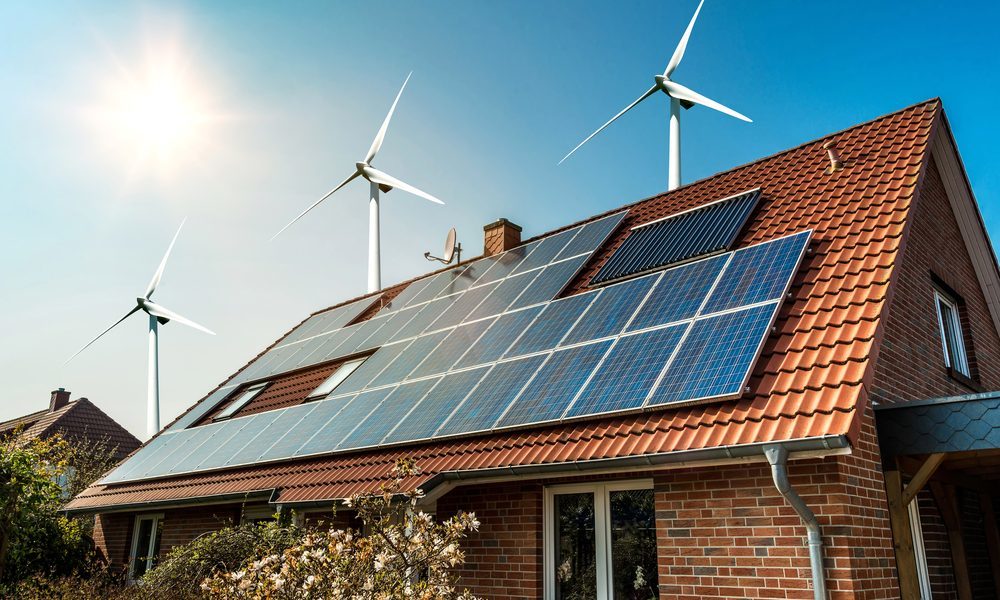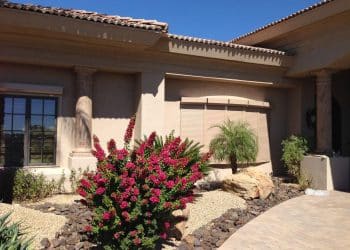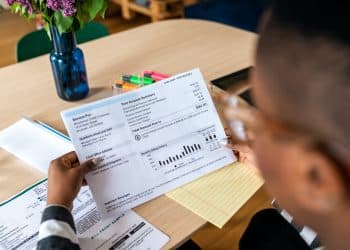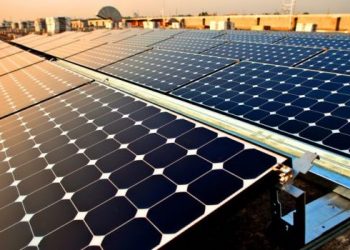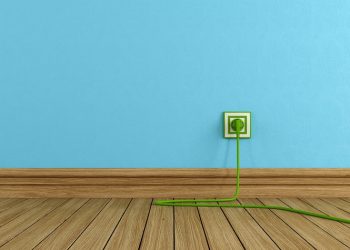Table of Contents
Alternative energy is in the news regularly these days. People have become more and more aware of the damage that has been done to the planet through the use of fossil fuels.
Tax credits and incentives have helped encourage more people to put solar panels on their roofs. This has had some effect, but the states still lag behind some other countries when it comes to using solar power. Electrek published a report by Cape Analytics that showed which areas of the US have the most solar panels. California has embraced solar energy more than anywhere else in the states.
However, in total, only around 1.8% of Americans have solar panels. By contrast, the UK which is often associated with grey, miserable weather had solar panels installed on 2.7% of homes, back in 2015.
Solar energy isn’t the only alternative source of power though. There are a few other methods that are being used in certain areas, and they are attracting the attention of homeowners, and designers, alike. But, are they truly all that they are cracked up to be, or is it just smoke and mirrors?
Why use alternative energy in your home?
The first things that most people associate with alternative power sources are the environment, and money. These are both valid thoughts to have as alternative energy is supposed to be more eco-friendly than traditional methods.
When you consider the financial savings you also have to factor in the installation costs too though. Would installing an alternative energy source save you money in the future, or is it folly?
One good reason for installing another power source that isn’t electric or gas is that fossil fuels are running out. Aside from the damage that burning fossil fuels does to the planet, the actual fuels themselves will disappear sooner than you might realize. This means finding suitable alternative energy sources is essential.
When will fossil fuels run out?
Making accurate predictions for when these types of fuel will no longer exist isn’t entirely straightforward. Consumption of each type changes every year, normally for the worst.
Fossil oil consumption grows bigger every year, and at the current rate, it is expected to run out within 50 years but possibly as little as 30. 2052 has been earmarked by scientists as the year that fossil oil will cease to exist on Earth.
This will almost certainly lead to higher consumption of natural gas. Coal and gas are also running short and could be gone within the next 60 years. Coal is used to produce electricity, so it stands to reason that other fuel sources will need to be found.
What are the options when it comes to powering a home?
If you are considering a renewable energy source for your home then there will be many concerns. Is hydro-power suitable, could you put a windmill in your garden, and can you put solar on a condo? Not all power sources will work for everyone.
The main alternative power sources today are solar, biomass, geothermal, hydro, nuclear, and wave energy. Clearly, you won’t be using nuclear power in your home, so you will need to investigate the realistic options.
Solar is by far the most popular, but does that mean it is the best for your home, and your needs? What about the other options? Keep reading below to find out.
Biomass energy
This source of energy comes from things that are living or once were. This means plants and animals. There are three main ways that biomass energy can be produced:
- Burning
- Rotting
- Growing
All the energy in biomass is created from the sun, and it can be released in different ways. When wood is burnt, energy is released. If food and other materials rot, they can release methane gas which is another form of biomass.
Lastly, growing certain crops can help with producing biofuels. Bioethanol, for instance, comes from corn and sugarcane, among other crops. Ethanol is used in gasoline to reduce the use of fossil fuels, biomass can generate electricity, and wood can be used in home heaters.
The advantages are that the supply is limitless, but the downsides are that it can be smelly, damages the environment, and needs a lot of space to grow crops.
Hydro, wave, and geothermal energy
Out of these three renewable, or non-conventional energy sources, hydropower is the most common one. Hydro-power is a practical way to produce electricity in certain regions, and windmills can be seen on farms, ranches, and besides homes with large areas of land.
Wave power may be used to help energy companies with an alternative source of renewable energy. While it is impractical to use this in a home, wave power can be used to run turbines to create energy for the grid.
Geothermal energy comes from the Earth’s subsurface. People that are located near hot springs could have geothermal water piped directly to their homes.
Solar power
If you have ever wondered why solar energy is good for the environment, then consider how electricity is produced. Even if biomass is used for producing electricity, it still needs to be burnt. This releases carbon dioxide into the atmosphere. Solar energy doesn’t harm the environment in any way.
In fact, without solar power, the Earth would die, and every living thing along with it. Solar power is the most realistic choice of sustainable energy that is available for homeowners today.
Why pick solar power to run a home?
Solar power has a huge amount of advantages for a homeowner or resident. Although installing solar panels can be costly, it is estimated that they could save the owners $1500 every year on electricity bills.
Solar power can be used in many areas such as pool covers and outdoor lighting, but to get the maximum benefits roof panels are needed. This would mean reducing your electricity usage substantially, and in some cases, you might receive money from your supplier. If you have too much energy stored, you can sell it back to your energy supplier.
Some reasons why solar power is the best alternative power now:
- It is clean
- It doesn’t smell
- It has no fumes
- It is renewable
- It is eco-friendly
- It is safe
Batteries are used to store solar energy, safely. Solar charge controllers stop batteries from overcharging when they are being used, and this means they will last longer and remain undamaged.
All these benefits would mean nothing unless the systems themselves are equally as efficient. Fortunately, solar panel systems are designed to last a long time. The system itself can last up to 30 years, possibly longer than your roof, and the batteries from 5 to 15 years.
Summary
The truth about alternative and renewable energy is that the Earth needs it. Fossil fuels will run out this century and perhaps in your lifetime. Even if there were endless amounts of coal, gas, and oil, alternative energy sources would still be needed.
Burning fossil fuels is causing permanent damage to the environment and also harms humans and other living things. As renewable energy is harnessed in different ways, homes and vehicles will be powered by more sustainable sources. Until then, solar energy is the most practical, alternative way for any individual to power their home.

